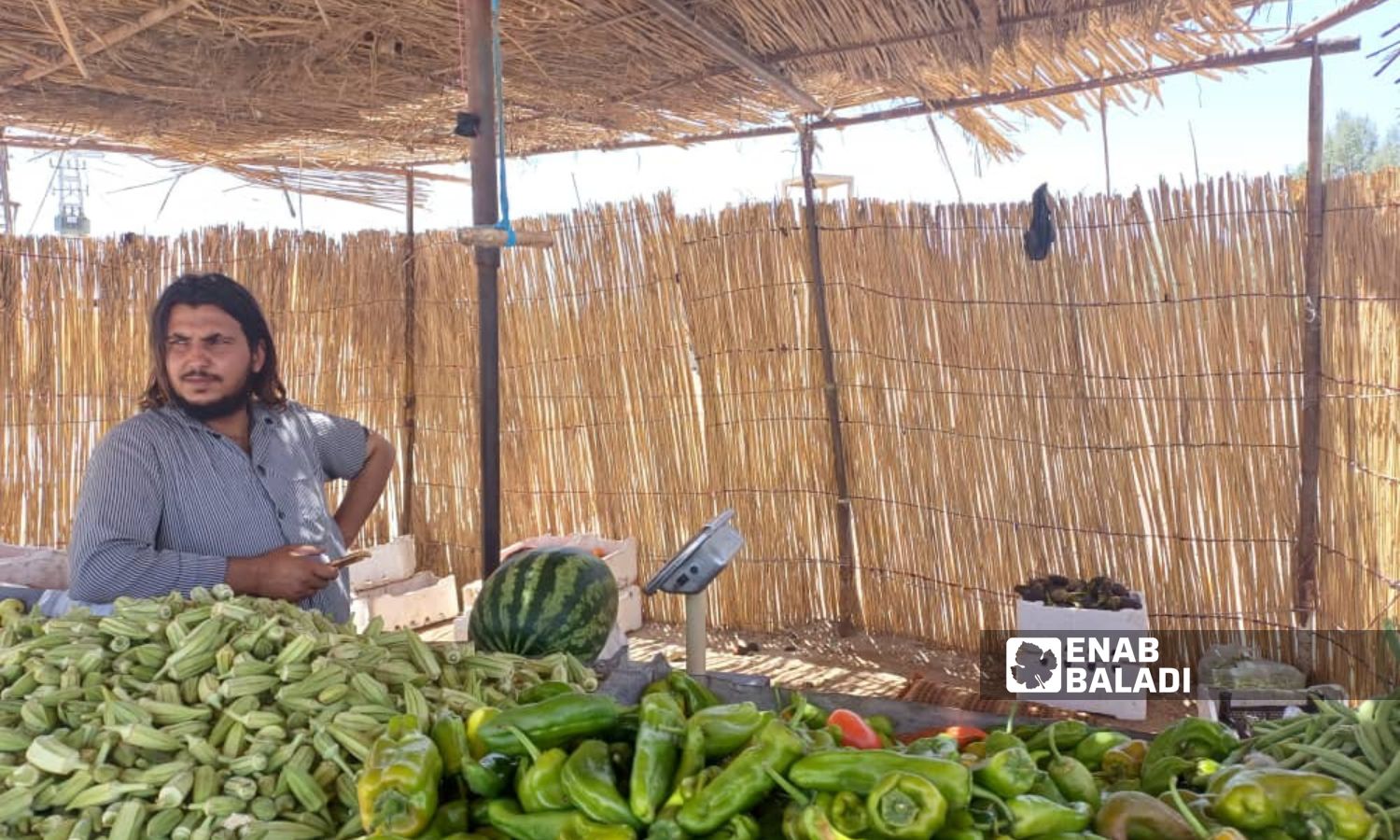



Deir Ezzor – Obadah al-Sheikh
The craft of making reed products is a traditional, inherited handcraft and a source of income for many families in the rural areas of Deir Ezzor. It continues to thrive to this day.
The uses of reed vary widely, from making household items like baskets, to tying grape arbors, to roofs of mud houses, and some even use it as fencing around houses instead of cement walls due to its lower cost.
During summer, the demand for locally made reed mats and rolls increases significantly. They are often used as sunshades in home yards and in front of stalls.
Daoud al-Zeir, a shop owner selling reed products in eastern rural Deir Ezzor, told Enab Baladi that residents buy these mats to use as shades at home and as roofs for animal shelters.
The prices of the reed rolls vary depending on how they are made. Some are woven with nylon thread and others with metal strips. They are sold at 75,000 Syrian pounds for a six-meter roll and 25,000 pounds for a four-meter roll (the dollar is equivalent to 15,000 Syrian pounds).
Additionally, reed is used for tying grape arbors, with the price of each cane at 5,000 Syrian pounds.
Sixty-year-old Fatima al-Khalaf, from the village of al-Arqoub in eastern rural Deir Ezzor, inherited this craft from her mother. Her family continues to make reed mats of various sizes, ranging from three to six meters, according to demand.
She told Enab Baladi that weaving reed mats is a good source of income for her, as it requires minimal capital and simple tools: a small awl and some weights (a set of ten stones).
The process begins with young family members gathering cane sticks from the Euphrates River. There are two types of cane: one that is hard and not easily broken, and another that is tender, hollow, and easily broken. The sticks are then cleaned from grasses and woven together to form mats.
She mentioned that she could weave one six-meter-long mat (locally called a roll) in one day, or two smaller ones.
Al-Khalaf sells the four-meter nylon-threaded mats for 20,000 Syrian pounds and the six-meter metal-strip woven mats for 75,000 pounds.
The work of making reed mats is also a source of income for Rahaf al-Ahmad’s family (37 years old) from the city of Hajin in eastern Deir Ezzor. Al-Ahmad inherited the craft from her grandparents. She mentioned that locals come to her house to buy the mats.
She and her sister make four to five mats daily. Al-Ahmad goes to Hawija (a patch of land in the middle of the Euphrates River, known either as “Hawija” or “Jazira”) every ten days to cut the cane.
Al-Ahmad considers weaving reed mats to be a labor-intensive job that requires time and focus. She noted that these mats are also used to decorate restaurants and as roofing in front of stores.
Many traditional crafts are still practiced in Deir Ezzor, such as fur making, which remains popular and is worn by both the young and old in winter as traditional attire.
These traditional crafts provide sources of income for families. Workers earn 25,000 Syrian pounds daily despite the long working hours, while the region suffers from economic decline and reduced purchasing power among its residents.
if you think the article contain wrong information or you have additional details Send Correction